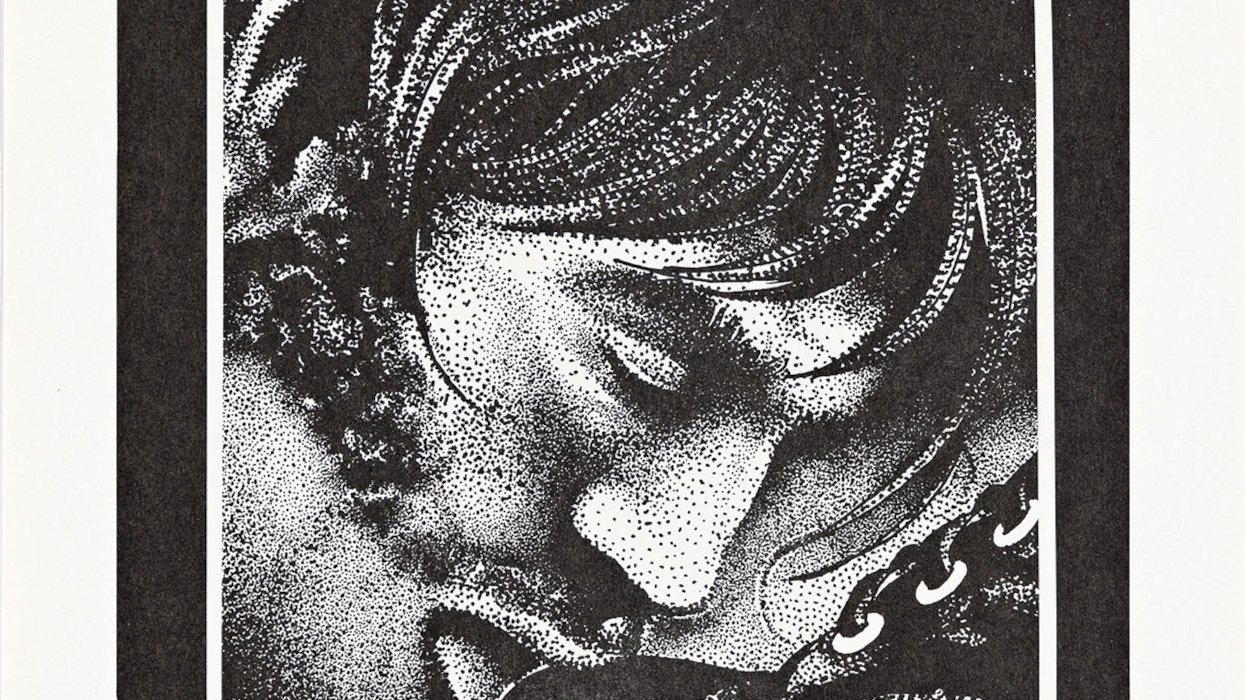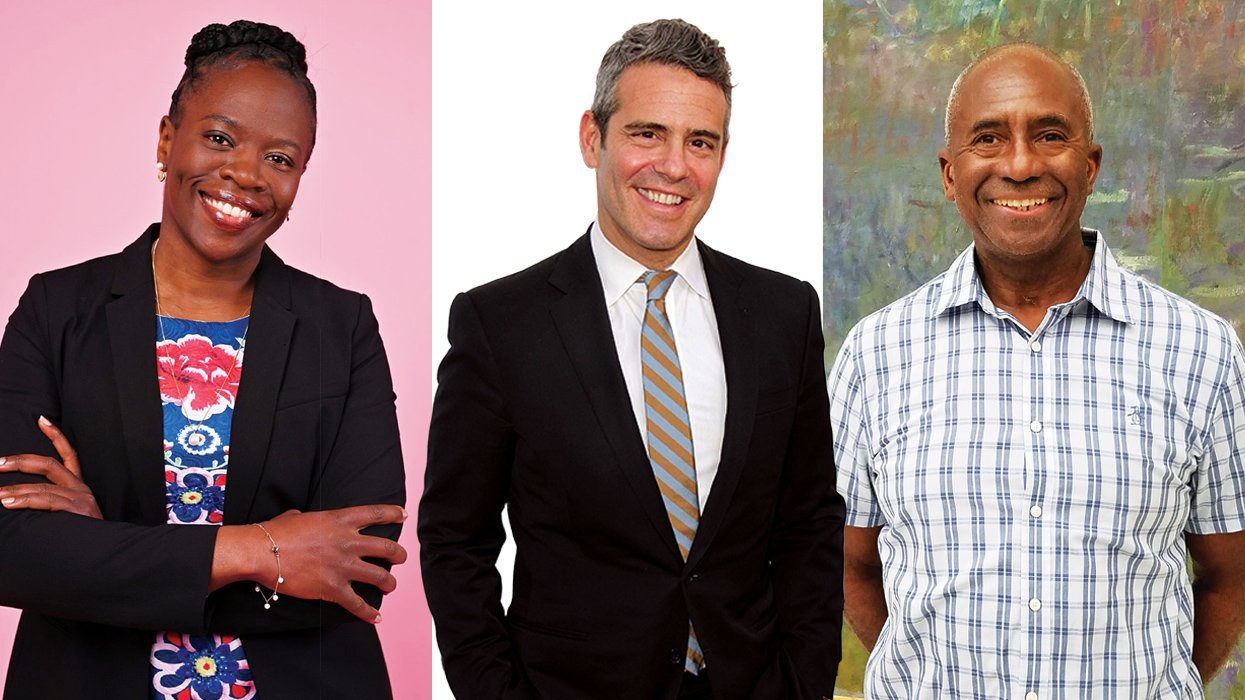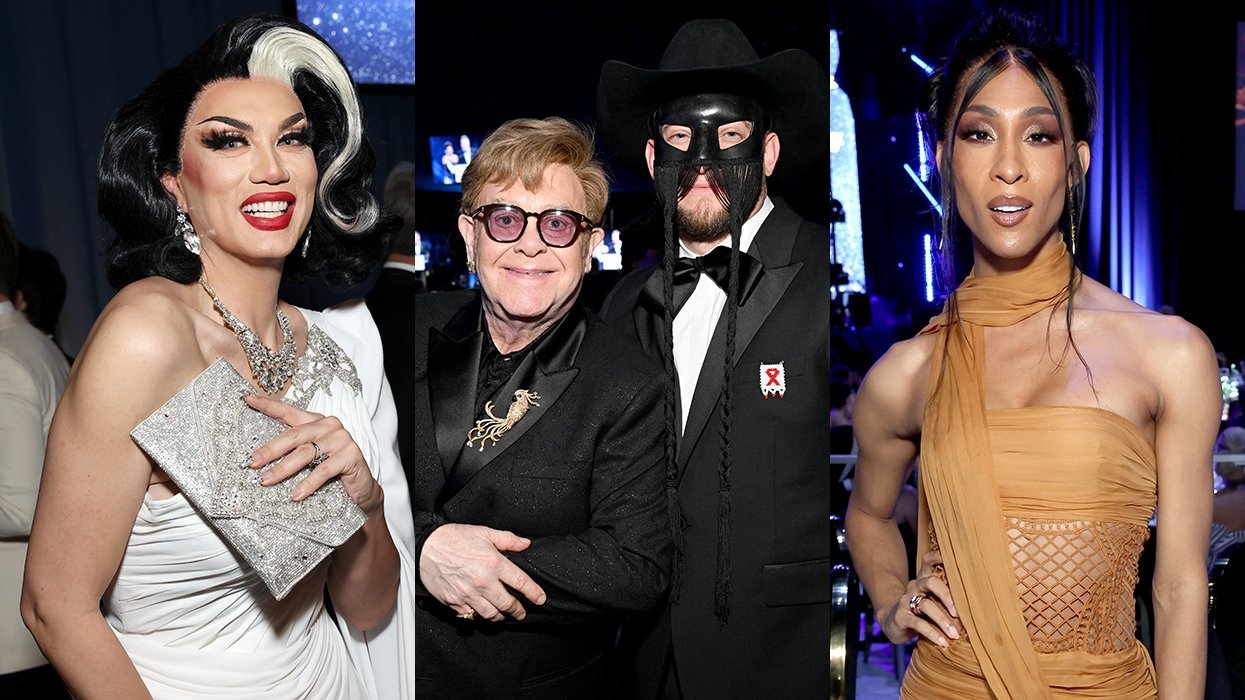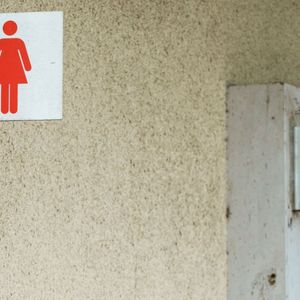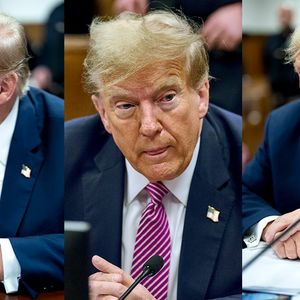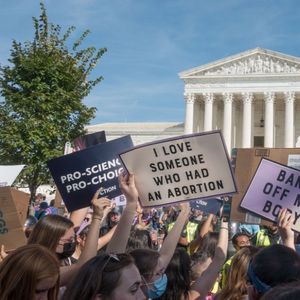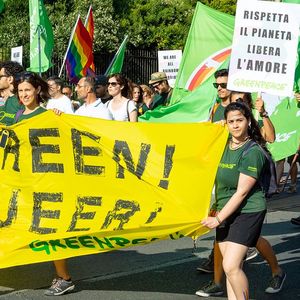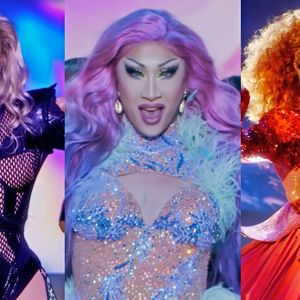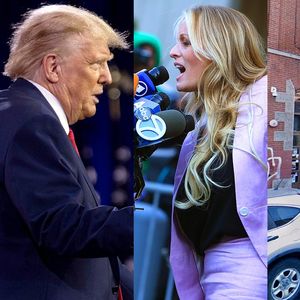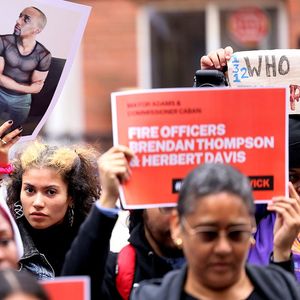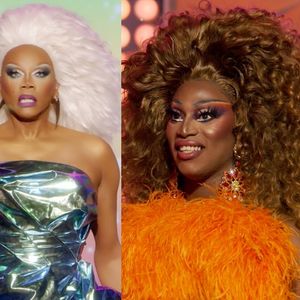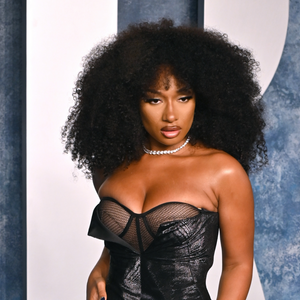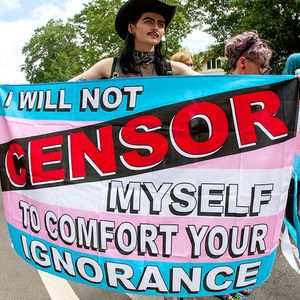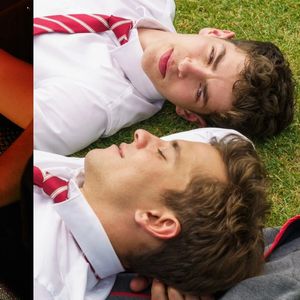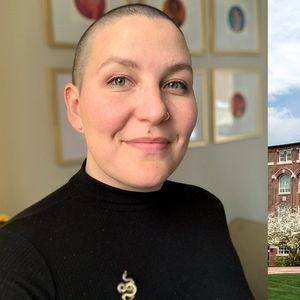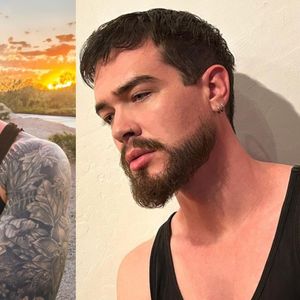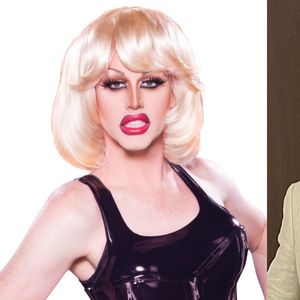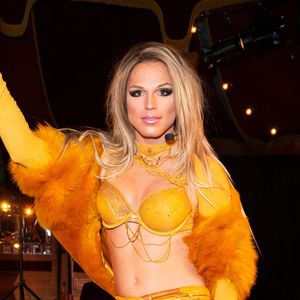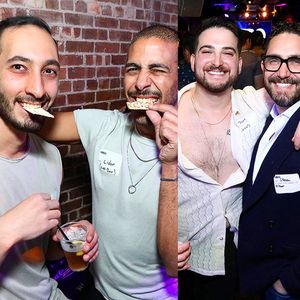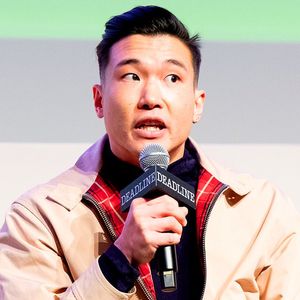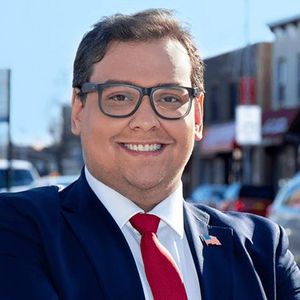
Treatment GuideJust DiagnosedSex & DatingAfrican AmericanStigmaAsk the HIV DocPrEP En EspañolNewsVoicesPrint IssueVideoOut 100
CONTACTCAREER OPPORTUNITIESADVERTISE WITH USPRIVACY POLICYPRIVACY PREFERENCESTERMS OF USELEGAL NOTICE
© 2024 Pride Publishing Inc.
All Rights reserved
All Rights reserved
By continuing to use our site, you agree to our Private Policy and Terms of Use.
Growing up in the Philippines, Ryan Palao says he was as educated about drag queens about as well as he was about HIV'and that was not at all. Seeing RuPaul for the first time on a 'fuzzy black-and-white TV' nearly two decades ago in his homeland, Palao remembers mistaking the 'Supermodel of the World' for a real woman. Even that, he says, was more exposure than he had at the time to information about HIV. These days, Palao has a more intimate understanding of both subjects. As Ongina, his drag alter ego, he finished fifth in March on the reality TV series RuPaul's Drag Race, etching his name forever in the annals of television history'not just for causing RuPaul to excuse herself from the judging table to get composed over her anguish that she was going to have to send the promising Ongina to 'Sashay away' home but by shocking the judges, competitors, and national viewing audience with his heart-wrenching admission of being HIV-positive. 'I just wanted to say'and I've always been so afraid to say it'I've been living with HIV for the last two years of my life,' sobbed the performer (who is best known for his effervescent, upbeat personality and penchant for quirky hats and headpieces rather than wigs) moments after being declared the winner of the program's MAC Viva Glam challenge. Though the 27-year-old Palao says he had no initial plans to reveal his serostatus, winning the challenge'which not only allowed him to pass to the next round of the reality competition but also earned him a day as a MAC Viva Glam spokesmodel'brought an uncontrollable flood of emotions, mostly joy. 'When I disclosed, it was because I was truly, truly happy,' he explains. 'It was amazing to know I had won something that I can represent, that has helped me and other people stay alive. Any funding for HIV has helped you or me, one way or another, and this was particularly meaningful to me because I have HIV.' WATCH OUR VIDEO INTERVIEW AND FOOTAGE FROM BEHIND THE SCENES AT THE ISSUE PHOTO SHOOT Palao remembers the date of his diagnosis like it was yesterday: April 13, 2006. Only 24 at the time, he says the AIDS awareness he'd lacked growing up in his native western Pacific island nation had more than been made up for when he moved to the United States a dozen years before. In his adopted hometown of Lynnwood, Wash., located in the greater Seattle area, he was offered sex-education classes every academic year from the sixth grade forward. 'It was something that was always talked about and was always put in the forefront,' he says of HIV. 'I was aware that it was one risk of unprotected sex, so I was very familiar with and aware of it in that sense.' In 1999, at 17, Palao came out to his family and moved to New York City shortly after September 11 two years later. On his 21st birthday he discovered drag. And Ongina was born soon after. All the while, Palao says he practiced safer sex. Just as important, he maintained a schedule of being tested for sexually transmitted diseases, including HIV, every three months. In January 2006 he got his last negative test result. A couple months later Palao met and became sexually involved with a man he describes as 'basically a stranger.' Though he had 'always been smart in making the decision to have protected sex' up to that point, after his partner told him he was HIV-negative, he says, one thing led to another and they had intercourse without a condom. 'I'm not assuming that he lied to me, but it's either that or he didn't know at all, but he did tell me he was HIV-negative,' Palao insists. 'It's a decision I made. I made it an option for me, and I wish I could go back and say, 'No, we're going to have protected sex.' ' Not long after, Palao remembers showing the flu-like symptoms'weakness, fevers'that are often associated with seroconversion, as well as a rash that covered his hands and portions of his face. Concerned that he might have contracted an STD, he went to his doctor to be tested. That test, he says, returned a false-negative result for HIV. As symptoms continued, Palao scoured the Internet for information about HIV, returning to the clinic to request a polymerase chain reaction test because he learned it was capable of detecting even trace amounts of HIV, rather than the antibodies that a typical test responds to. 'If I did have something, I wanted to protect myself from getting any sicker,' he says of his persistence. 'I wanted to be able to start medication right away or do whatever was necessary to stay healthy and keep moving forward.' This time, the results came back positive. Despite sharing Ongina's bubbly, happy-go-lucky personality in his day-to-day life ('What you saw on TV is who I really am! I am that crazy, that happy, that vulgar.'), Palao says the first six months after his diagnosis were particularly hard. He tried to stay busy by educating himself about the disease and his treatment options. 'I had to take medication. I had to start counseling. I had to start asking the questions I needed to ask to live a long life and stay healthy,' he says. 'But I started to get depressed. And I started to have all these emotions, blaming myself for the decision to have unprotected sex with somebody I didn't know.' Fortunately, over time Palao was able to open up to friends about his diagnosis. It helped create the support network he needed to manage those early times, navigate several changes in medication'from a six-pill-a-day Kaletra-based regimen to a three-pill-a-day Reyataz combination, which he discontinued after developing yellowing of the eyes, to once-a-day Atripla'and generally feel his way through the most difficult patches. By the time he debuted on Drag Race, which began taping in August 2008, he says he had accepted being HIV-positive and was living a healthy, happy life. However, he had still not shared his HIV diagnosis with family, which became a particularly pivotal point once he realized his moving on-air admission would broadcast on national television and become fodder for headlines, both good and bad. There was now no avoiding the discussion. 'I can barely tell my mom when I'm dating,' he relates. 'And now I have to tell her I'm living with HIV? I didn't know how to do that without hurting her, without making her worry. And that was what I really wanted to avoid.' In the weeks before the episode aired, Palao returned to Washington to have the conversation he had been avoiding for nearly three years. When it was over, he says he felt the same tremendous sense of relief he described after revealing his serostatus on the show. 'I am happy I have come out of the HIV closet, because now I can live life without hiding anything,' Palao says. 'This is me: full, raw Ryan. You can take it or leave it. You either like it or you don't, but this is exactly what you'll get.' And with the newfound celebrity status Ongina has gained through her performance on Drag Race, Palao says he is more than happy to act as a spokesperson for HIVers whenever possible. He especially hopes to share with others the message he presented during the show's MAC Viva Glam challenge: 'Celebrate life!' 'That's something I always believed,' he says. 'That's how I live my life. I don't live any way other than what I know, and that's to live life to the fullest every day when I wake up. Even before I decided to disclose my status, I wanted to show people that, no matter what happens, life is a celebration!'
Want more breaking equality news & trending entertainment stories?
Check out our NEW 24/7 streaming service: the Advocate Channel!
Download the Advocate Channel App for your mobile phone and your favorite streaming device!
From our Sponsors
Most Popular
Before AIDS, gay artist Rex drew hot men on the prowl — then he disappeared
April 11 2024 3:15 PM
Diets that mimic fasting reverse aging: study
March 07 2024 5:28 PM
The Most Amazing HIV Allies & Advocates of 2023
November 03 2023 12:51 PM
PrEP without a prescription now a reality in California
February 06 2024 8:37 PM
This OnlyFans Star Is Trying to Raise $100K to Fight HIV
December 26 2023 3:05 PM
Injectable HIV treatment, prevention: Everything you need to know
March 26 2024 3:28 PM
The naked Black body takes center stage in this HIV campaign
January 03 2024 1:07 PM
8 dating tips for gay men from a gay therapist
March 21 2024 2:50 PM
Mr. Gay World wants to make sure you're OK
January 02 2024 4:56 PM
Plus: Featured Video
Latest Stories
The government failed on mpox. Ritchie Torres's new bill addresses that
April 18 2024 1:21 PM
On Anal Sex Day, crack up with The Bottom's Digest
April 18 2024 10:22 AM
Todrick Hall has long supported the communities he comes from
April 17 2024 12:02 PM
Our May/June issue of Plus is here!
April 17 2024 12:00 PM
Giselle Byrd is taking center stage — and helping others do the same
April 10 2024 2:24 PM
Discover endless fun at The Pride Store: Games & electronics for all ages
April 09 2024 4:25 PM
Mean Girls' Daniel Franzese on playing an HIV+ character
April 09 2024 3:57 PM
HIV-positive Air Force, Navy servicemembers victorious in lawsuit
April 09 2024 3:02 PM
Unlocking a new level of beauty with Dr Botanicals' ethical skincare line
April 08 2024 3:40 PM
Unleash your wild side with The Pride Store’s beginner’s guide to kink
April 08 2024 3:35 PM
Why are mpox cases in the U.S. on the rise again?
April 08 2024 1:30 PM
Happy national foreskin day!
April 04 2024 1:45 PM
Adult entertainment icons Derek Kage & Cody Silver lead fight for free speech
April 03 2024 3:06 PM
LGBTQ+ patients twice as likely to face discrimination: survey
April 02 2024 4:57 PM
Spring into The Pride Store’s top new arrivals for April
April 02 2024 4:39 PM
Nashville PD Must Pay HIV-Positive Man Denied a Job
April 01 2024 6:22 PM
Common has a message on how to foster self-love
March 29 2024 7:33 PM
Listen to Dr. Levine: Take syphilis seriously
March 28 2024 6:40 PM
Breaking boundaries in gender-free fashion with Stuzo Clothing
March 27 2024 2:15 PM


